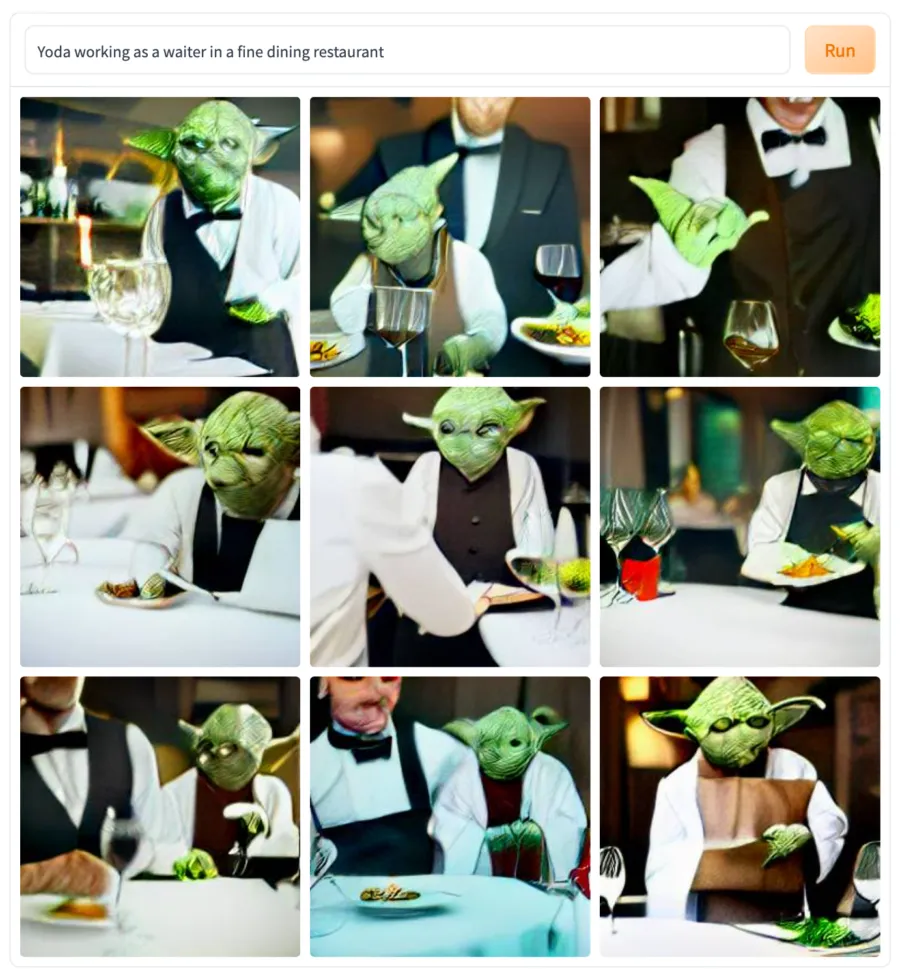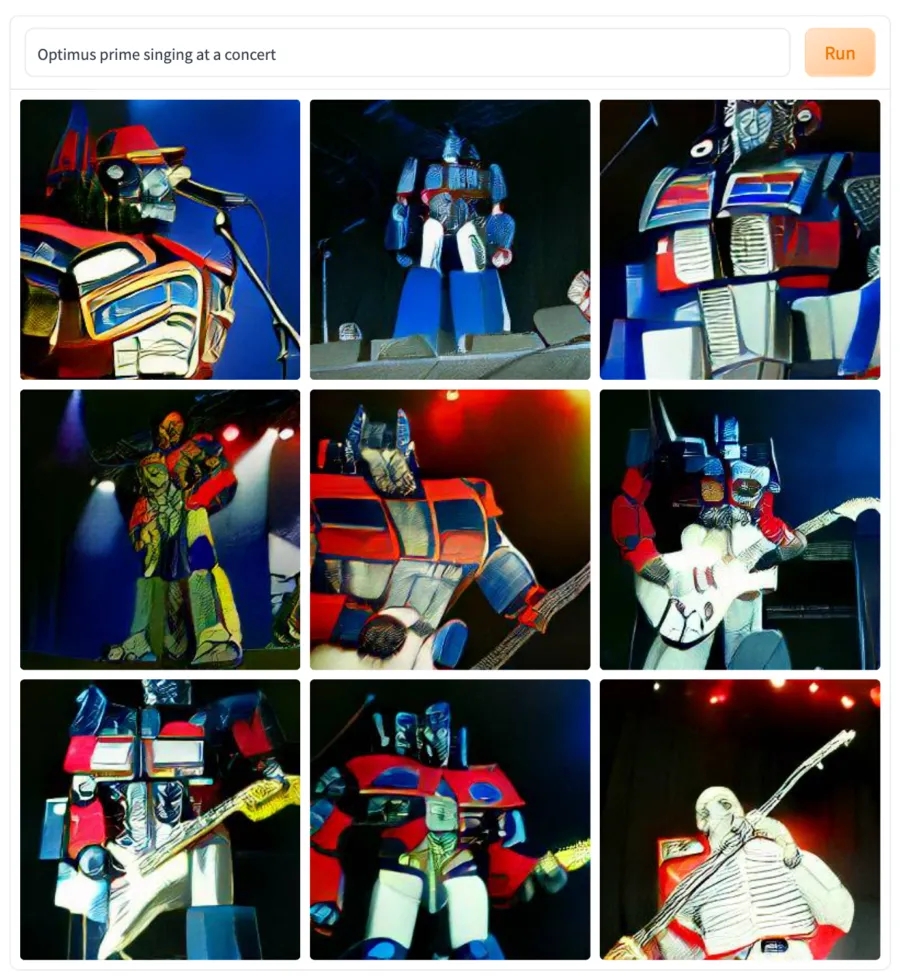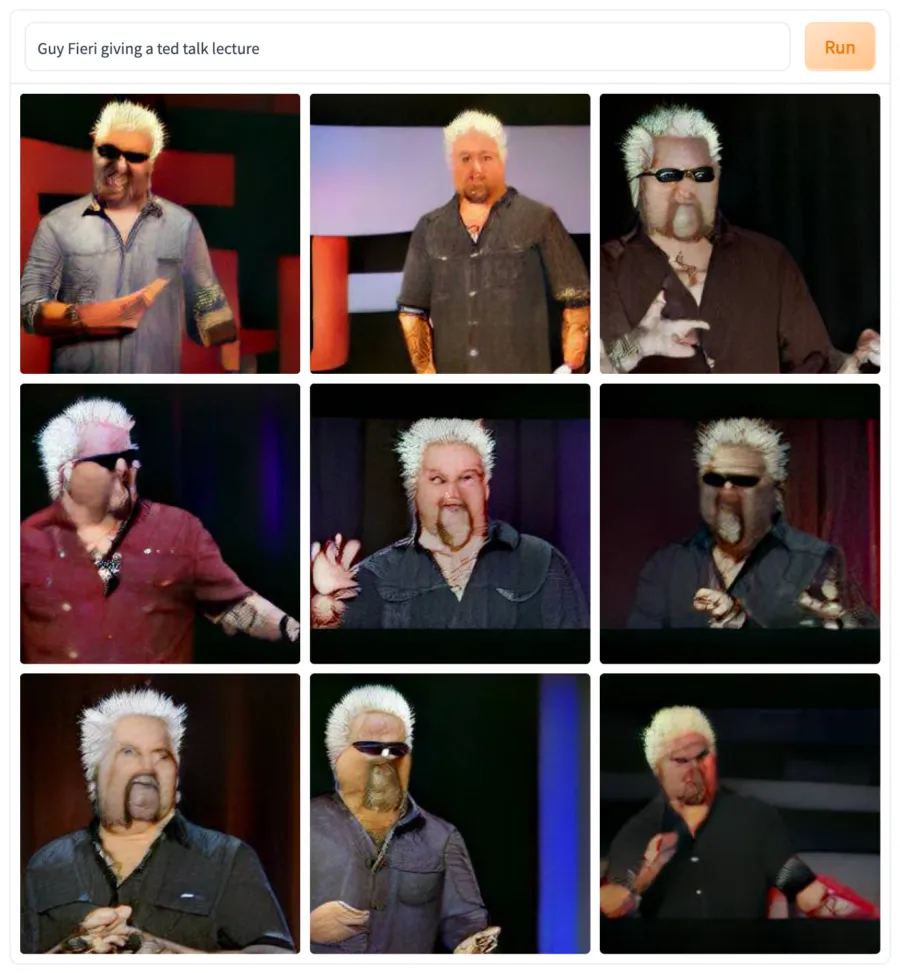Artificial intelligence has changed the world, solving highly complex mathematical questions, making tedious tasks easy, and most recently, allowing the internet to create images of Yoda and Godzilla playing poker together.
In fact, thanks to the free-to-use platform Dall-E mini, the internet has been filled with an array of bizarre images of strangely warped celebrities, cartoon characters in comprising positions, and animals dressed as aristocrats.
What is Dall-E mini and how does it work?
Dall-E mini is a text-to-image AI software that creates images from your written prompts.
Insert a command and it will do its best to generate a visual interpretation of that prompt. Of course, in practice Dall-E's artistic talents are a little more complicated than this.
Dall-E mini takes its name (and a lot of its code) from OpenAI’s software Dall-E 2. A team led by Boris Dayma developed this alternative using the open-source nature of Dall-E 2.
The model has been trained by looking at millions of images spanning across the internet tied to their captions. By doing this, the program builds up a database of what an image looks like with its worded prompt.
This software, while impressive, is by no means flawless and can often struggle to produce a perfect image, and in particular seems to struggle with faces.

How to use Dall-E mini
If you want to try out the service yourself, all you have to do is head over to the Dall-E mini website. Here you’ll be asked to enter a prompt and run it. This can take a while to process, so expect a wait of up to 2 minutes for your image to appear.
You’ll then be given nine images matching the prompt, all of slightly different variations. You’ll often find the image comes out blurry, or that Dall-E has misunderstood your prompt. If this happens, simply tweak the command a bit and try again.
You can ask for different styles of images with your command as well by adding phrases like 'as a painting', 'in a fish eye lens', 'as cctv camera footage' – get creative!
Keep in mind that users are often getting the issue of 'too much traffic'. If this happens, try running it again - usually it will work after a couple of attempts.

Dall-E vs Dall-E mini
As we mentioned, Dall-E mini is following in the footsteps of another, more developed piece of software known as Dall-E 2, but while the two platforms use the same software, their approach and end results are very different.
Firstly, Dall-E 2 is a private service, offering access based off a long waitlist. Dall-E mini, on the other hand, is free to use for everyone. This does mean Dall-E mini can often be unavailable with too much traffic and slower load times.
The mini equivalent struggles to match the same kind of quality as the original as well. Prompts can often come out blurry or of low quality. Dall-E 2 on the other hand is, for the most part, accurate and high-quality.
The other noticeable feature you’ll see in Dall-E mini is a better understanding of pop-culture. Characters like Yoda and Thanos or celebrities including Guy Fieri or JK Rowling will appear… often in slightly vague but identifiable shapes.
A wild west of images
One of the big claims made by OpenAI with the original Dall-E system was around safety. It implemented a safety policy for all of its images, filtering out images that are violent, sexual or that the team might consider inappropriate.
A second filter is also used to try and remove any images that could be deemed political, propoganda or offensive in a more subtle way.
Finally, right now the Dall-E 2 team is checking every single image to weed out anything inappropriate that sneaks in.
On the other hand, the new Dall-E mini has no restrictions. While the team has given a disclaimer about biases and imagery that. might show, no search is banned.
This means that images have surfaced that wouldn't pass the original model's safety restrictions, creating a bit of a wild west of images on the internet.

The future of Dall-E mini
Like the original model that it has taken inspiration from, Dall-E mini is constantly improving and building. The team has added a screenshot button, and is working on Dall-E Mega - a beefed-up version of the model that has key improvements in mind.
However, Dall-E mini has big competition. OpenAI is slowly opening up their software to the world, allowing more people to use Dall-E 2, and Google has now launched its own competitor called Imagen - a model with a similar accuracy to OpenAI's original invention.
Read more:
